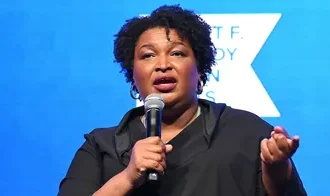Our next story takes to the Middle East as Turkey announced they have officially cut ties with Israel. A diplomatic relationship that has flourished for decades has now reached a breaking point. Is this the beginning of a new geopolitical landscape in the Middle East or a moment of political posturing?
Turkey-Israel relations over the years
Turkey and Israel weren’t always on opposite ends. In fact, Turkey and Israel have a long history of cooperation since 1949. Turkey was the first majority-Muslim country to recognize Israel’s sovereignty and have full diplomatic relations with Israel. They shared military cooperation, intelligence-sharing, and economic trade.
However, as the Middle East became more volatile and political dynamics shifted, the relationship between Ankara and Tel Aviv took a darker turn.
How did the news break out? Turkish President Recep Tayyip Erdogan announced this on Wednesday, November 13, according to reports in Turkish media.
Erdogan made the comments to journalists aboard his plane following visits to Saudi Arabia and Azerbaijan.
The Turkish media reported Erdogan to have said: “The government of the Republic of Turkey, under the leadership of Tayyip Erdogan, will not continue or develop relations with Israel.
“Our ruling coalition is resolute in its decision to cut ties with Israel, and we will maintain this stance in the future as well.”
“We, as the Republic of Turkey and its government, have currently severed all relations with Israel.”
So, what exactly pushed Turkey to end relations with Israel? There are a few key events that strained this alliance.
The first major fracture occurred in 2010, with the infamous Mavi Marmara incident. Israeli commandos boarded a Turkish humanitarian flotilla attempting to breach Israel’s blockade of Gaza, resulting in the deaths of nine Turkish activists. This resulted in a wave of anger in Turkey and led to the withdrawal of its ambassador. Though relations were partially restored a few years later, the trust was broken.
Then, during Israel’s military campaigns in Gaza from 2008 to 2014, Turkey’s government condemned Israel’s actions and provided diplomatic support to Hamas. This further eroded relations.
To what actually prompted the current pronouncement, 2024 saw tensions reach a boiling point. Turkish President Recep Tayyip Erdoğan has positioned himself as a vocal critic of Israel’s activities in Gaza and the West Bank, declaring that enough was enough. The breaking point? An escalation in violence between Israel and Palestinian territories, coupled with Israel’s controversial settlement expansions, which Ankara condemned as illegal and inhumane.
Although, there is no official communique to the said comment by Turkish President Erdogan as the Turkish embassy in Tel Aviv is still operating. It is not surprising, though, because, in May this year, Turkey imposed a trade embargo on Israel but continues to maintain diplomatic relations with Israel. The Turkish government formally recalled its ambassador last year for consultations, and Israel also evacuated its embassy in Ankara last year, citing regional security threats.
United Nations and Turkey proposing arms embargo
The relationship between the two countries is on the hook as early in November, Turkey launched an arms embargo at the United Nations, which aimed to prevent the shipment of weapons and ammunition to Israel.
How does this impact the Middle East political landscape?
This isn’t just about two countries cutting ties; it’s about the Middle East and its delicate web of alliances. With tensions at an all-time high in the region, countries like Iran, Saudi Arabia, and Egypt are watching closely, while the United States, Israel’s staunch ally, faces yet another challenge in maintaining stability in the region.
Many are asking whether Erdogan is shifting toward more supportive ties with nations critical of Israeli policies, as his comments came after he visited Saudi Arabia and Azerbaijan.
His recent visits to both Saudi Arabia and Azerbaijan were seen as part of an effort to revise Turkey’s foreign policy and enhance its influence in the Middle East and Caucasus.
Erdogan visiting Saudi Arabia and Azerbaijan
How will this affect Turkey’s relationship with other Western nations, particularly those who back Israel? Will Turkey move even further towards Russia, China, and other non-Western allies? Turkey’s decision will likely reverberate through its alliances with NATO and its role in the ongoing Syrian conflict.
This could hurt both economies, particularly Turkey, which has benefited from Israeli technology and investments. On the other hand, Israel loses a key regional partner. Will this push both countries to seek new allies, or will they be forced to return to the negotiating table in the years to come?
Turkey’s trade and technology ties with Israel
The question now is, who stands to gain from this break in ties? Is Erdoğan’s cutting ties with Israel more about domestic politics rather than genuine concern for the people of Gaza? Meanwhile, Israel may see this as an attempt by Turkey to assert itself as a dominant force in the Muslim world, challenging Saudi Arabia’s leadership and Iranian influence.
Is Turkey playing a risky game, isolating itself further from Western allies, or is this a masterstroke in solidifying its role as a key regional power?















